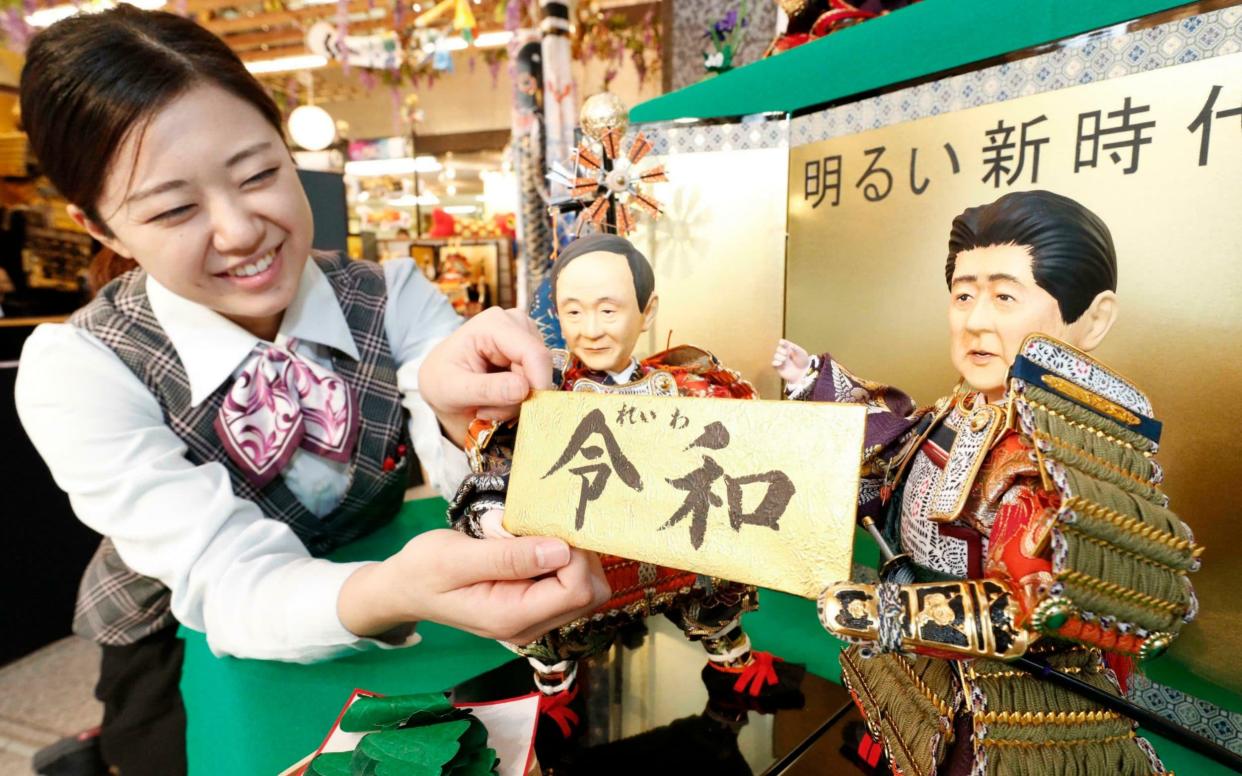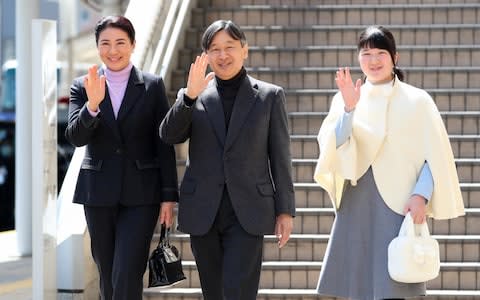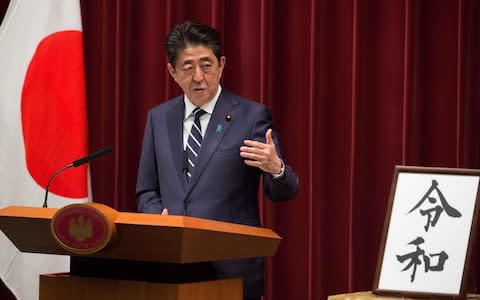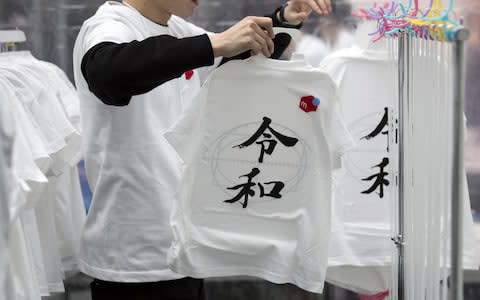Japan chooses new imperial era of 'Reiwa' from Japanese rather than Chinese source for first time

The name of Japan’s new imperial era unveiled yesterday/MON was selected from Japanese rather than Chinese texts for the first time in more than 1,000 years, hinting at the government’s nationalist leanings.
Following months of secret discussions, the name of the new era was announced by the Japanese government as Reiwa, which can be translated as “auspicious harmony”.
The Reiwa era, which will become the 248th era – or “gengo” - in Japanese history, will commence on May 1 when Crown Prince Naruhito ascends the Chrysanthemum Throne, following the abdication of his father Emperor Akihito the previous day.
Unusually, the new era name was not selected from traditional Chinese texts, as has been the case since Japan’s first gengo began more than 1,300 years ago in 645AD.
Instead, Reiwa was taken from a Japanese classic for the first time in the nation’s history, with the word originating from 7th century Manyoshu, the country’s oldest existing collection of poetry.
The abdication of Emperor Akihito will bring to an end the 30-year Heisei era – meaning “achieving peace” - a period likely to be associated with the collapse of the bubble economy as well as the March 11, 2011 earthquake, tsunami and nuclear crisis.

The decision to subvert tradition and use a Japanese rather than Chinese text to mark a new and modern era for Japan appears to tie in with the nationalist leanings of prime minister Shinzo Abe’s conservative government.
Bilateral tensions with China and regular flare-ups over territorial disputes have become a near-constant backdrop to Mr Abe’s tenure in power, while the PM has also regularly voiced his determination to revise the nation’s pacifist postwar constitution by 2020.
Announcing the new gengo live on television, Yoshihide Suga, the chief cabinet secretary, held up a framed placard with the era name written in two calligraphic black kanji symbols on white paper.
Shortly after the announcement, Mr Abe highlighted the positivity of the new name, explaining that it reflected how culture is born and grows when people come together and “care for each other beautifully”.
He added: “With this selection of a new era name, I renew my commitment to pioneer a new era that will be filled with hope.”

The characters are taken from one particular poem referencing plum blossoms that reads: “It is now the choice month of early spring; the weather is fine, the wind is soft. The plum blossoms open - powder before a mirror; the orchids exhale - fragrance after a sachet.”
The unveiling of new era name was hotly awaited in Japan, as the Imperial calendar remains widely used on coins and in official documents such as driving licences as well as by newspapers.
Reiwa was selected after the government spent months studying proposals from scholars of both Japanese and Chinese literature and history.
Suggestions were then discussed by a panel of nine experts, including Sadayuki Sakakibara, former chairman of the Japan Business Federation, novelist Mariko Hayashi and Nobel Prize winning scientist Shinya Yamanaka.
While gengo names are traditionally announced after the succession of a new emperor, the announcement was brought forward on this occasion in order to minimise disruption to businesses and computer systems.

Some experts cited concerns relating to potential computer glitches caused by the calendar change, with companies such as Microsoft offering support to customers preparing for the switch.
Japan originally imported the imperial calendar system from China and is today the only country in the world that uses a “gengo” era name system.
The gengo system is often used alongside the Western calendar in modern-day Japan. A recent Mainichi newspaper survey revealed that around 34 per cent of Japanese use the Imperial calendar in daily life, another 34 per cent use both gengo and the Western calendars and a quarter use mainly the Western system.
Sign up for your essential, twice-daily briefing from The Telegraph with our free Front Page newsletter.

